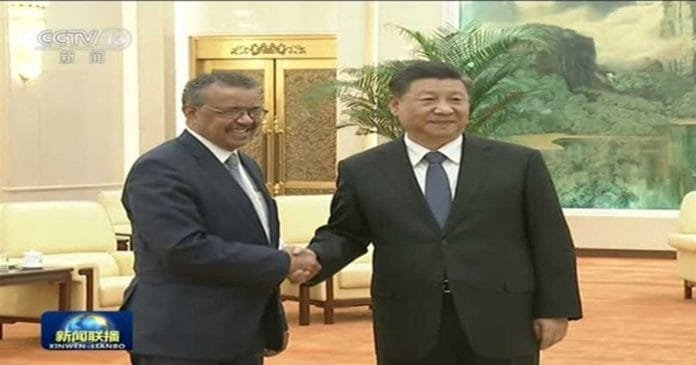by VIJAY PRASHAD

Part 1: How the Chinese Authorities and the World Health Organization Handled the Coronavirus
The attack on the Chinese government and the World Health Organization’s work on the new virus by the Trump administration is unfounded.
On April 14, 2020, U.S. President Donald Trump addressed a news conference at the White House, where he said that his administration would “halt [all] funding” for the World Health Organization (WHO). The WHO, founded in 1948, is the principal United Nations agency tasked with the improvement of the health of the world; it is also widely acknowledged as an agency that is best suited to deal with health emergencies.
On March 11, a month before Trump’s announcement, the WHO had declared a global pandemic as a result of its deep concern of both the alarming levels of spread and severity, and the alarming levels of inaction. Up to this April, this highly infectious virus has sickened at least 2 million people and killed 183,000 people around the globe. The number of people who have died in New York City—Trump’s hometown—from the novel coronavirus outbreak is far higher than that of 9/11. To cut funding to the only agency able to coordinate the global response drew a sharp intake of breath from people around the world.
Why would Trump withdraw $400 million—15 percent of the WHO budget—in the midst of a crisis that does not seem ready to abate? Trump’s answer is that the WHO “failed in this basic duty” by “severely mismanaging and covering up the spread of the coronavirus.” It is essential to detail why Trump’s accusations against the Chinese government and the WHO are wrong, starting with why Chinese authorities learned about the coronavirus, and how the WHO and the Chinese authorities named and shared information about the virus.
Emergence
Doctors in Wuhan observed an unusual kind of pneumonia in late December. On December 31, a high-level team arrived from Beijing to investigate the reports coming from the hospitals. That day, on the last day of 2019, the Chinese authorities informed the Beijing office of the WHO of “cases of pneumonia unknown etiology [medical term for cause].”
Independent Media Institute for more & part II